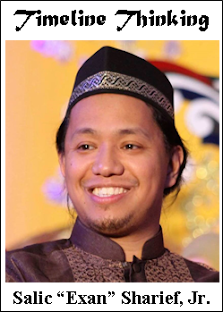Moro Consciousness: A revisit to our past on how they saw our future
The
Bangsamoro Consciousness Week draws curiosity and worth to commemorate the
bravery, courage and ethical prowess of our Moro heroes. This occasion also
necessitates that we look into the tragic experiences our Moro brethren, their
families and the entire Muslim communities in the past.
The
famed Jabidah Massacre seemed to be the immediate image that most of us imagine
when we speak of the oppression of our Moro tribe. However, it must be
emphasized that this was only one among the many abuses done. But prior to the
happening of this tragic event, the Moros have long been used to going into
battle. In fact, in Cotabato, there was Datu Ali, whose struggle was the most
significant anti-colonial response in Mindanao during 1903-1906. He was one of
the many who sought support from Lanao Muslims for what he thought was the only
meaningful answer to American militarism, as cited from a publication of the
MSU Research Center. This was an attempt
to call for a basic historical unity among Muslim Moros of Mindanao. Sadly,
dissensions and rivalries within the tribe greatly affected the advocacy. In
the same publication, it mentioned that during the civil regime, the Lanao
Muslims were divided into pro-American and pro-Filipino. The former was led by
Amai Manabilang of Madaya and Datu Lawi Usongan of Masiu, while the latter was
composed mostly of government officials led by Datu Ibra. In Sulu, disunity was
portrayed in political disputes and intrigues. Datu Tahil, an escapee of the
1913 Bud Bagsak encounter, revolted due to political grievances and economic
problems. In the early thirties, the Sultan was opposed by a powerful
combination of Sangkula, Tulawi and Indanan.
It
was not long ago when there was a discord between the MNLF and MILF factions,
where at one point, there were subgroups who came out in the limelight,
advancing their own principles quite contrary to those of the two camps. A
presidential term passed with the discussion of the Bangsamoro issue still left
unresolved, where concerned groups even pull each other to prove better title
over the other. Finally, now comes a new hope with a Bangsamoro Transition
Commission accommodating representations from both parties. While we remain
optimistic on the realization of the genuine solution to lasting peace and
development, confederations of civil society organizations further support the
notion that this is the best time to highlight and actuate the noblest sense of
unity and harmony in diversity.
Now
poses the vital realization, as supported by a foreign writer David Richard,
that should we loose good and highly spirited people, examine not only how the
affairs were managed by the leader, rather look into how the latter
acknowledges the labor and sacrifices of the former. In the pursuit of unity,
one must understand selfless service, guided by the veritable postulates of
reform, respect and mutual resolution.
Delicate
past. Esteemed today. What is for tomorrow?




